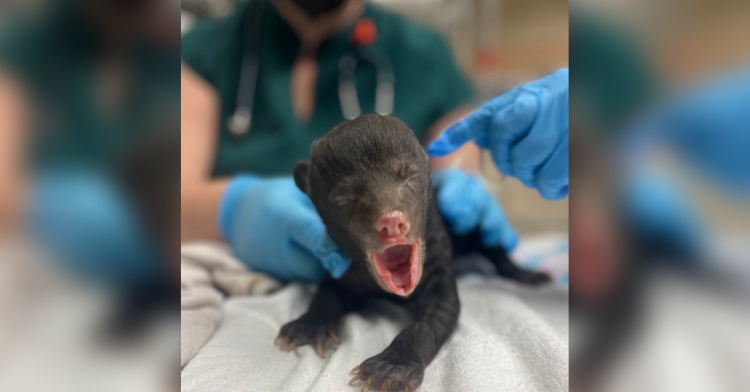On Valentine’s Day, the Wildlife Center of Virginia took in its first batch of orphaned bear cubs of the year, and the staff is working round-the-clock to keep them healthy as they search for a foster mother.
The center took in the cubs after a construction crew accidentally damaged their den while clearing brush from a site. When workers noticed the mother running from the den, they turned off their machines and immediately called the Department of Wildlife Resources (DWR).
A biologist went to the scene and found three newborn black bear cubs. They considered leaving the cubs to see if their mother would return. But one of them was injured, and construction was continuing in the area. So the biologist brought the cubs to the center.

A veterinary team checked out the orphaned bears, which included one female and two males. The cubs were so young that they had yet to open their eyes, but two of the three were deemed healthy. They only suffered from mild skin lesions, which could be from ringworm. The third cub will need some extra love and attention because of an injured leg.
Staff members are tirelessly working to ensure the cubs thrive, and they’re bottle-feeding them with formula every six hours day and night.
The DWR Hopes to Place the Orphaned Bears With a Foster Mother.
Meanwhile, the DWR is looking for a foster mother to care for the cubs. Black bears with litters of their own will usually take in orphans and raise them as their own. However, not many bears have given birth this year because of a lackluster acorn crop last fall.

The department has been looking into the collared bears it tracks, but there are very few options among them. Simply having cubs doesn’t make a mother a foster match. Biologists also need to consider “the location of the female [and] den where we’d try to foster these cubs, the age of the female, the number of cubs she already has, and even the weather,” according to DWR bear biologist Katie Martin.
While it would be best to quickly get the orphaned bear cubs back into the wild, they will be healthy and cared for no matter what happens. If no foster mothers come through, a rehabilitation team at the wildlife center will raise the cubs until next spring when they’ll be old enough to be released in the wild without a mother.
You can find the source of this story’s featured image here.
Want to be happier in just 5 minutes a day? Sign up for Morning Smile and join over 455,000+ people who start each day with good news.



